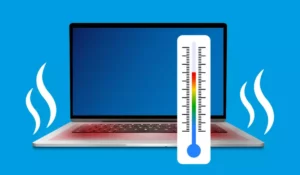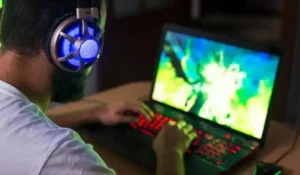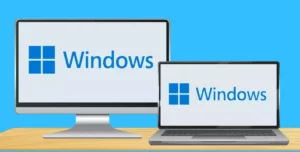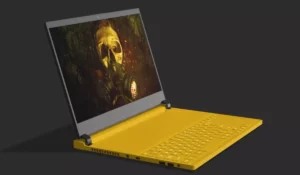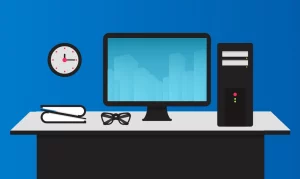Having a laptop, and more recently, a tablet used to be luxurious possessions for an individual. With the increasing demand for these technologies and a faster shift to everything digital, we became more dependent and reliant on these technologies in our daily lives.
Both laptops and tablets can be practical in terms of performance, mobility, and versatility. Laptops are generally better performers whilst tablets provide better mobility. But to sum it all up, we cannot deny that laptops are still better than tablets.
To justify, here are the twelve reasons why laptops are better than tablets:
1. More functionality
Laptops are just portable versions of conventional computers. Whatever functions a conventional computer can do, the exact same functions can also be done with a laptop plus its ability to be mobile.
Tablets, on the other hand, are a hybrid of most features found on smartphones and “limited” features found on conventional computers. Whilst a tablet, being a hybrid, may look attractive to you, it is only capable of doing limited computer functions.
Although a tablet offers better mobility, a sim-card provision for connectivity, and a longer battery life in an off-grid situation; its limited functionalities still cannot beat the various functionalities of a laptop that can serve a variety of purposes, just like conventional computers.
2. Very wide range of prices that fit a variety of budgets
Tablets, in general, are cheaper and can be as cheap as a basic-functioning smartphone. But did you know that laptops can cost as low as under US$200? That’s insanely cheap! And these cheap laptops still possess at least most of the basic functions that a conventional computer has.
Low-range laptops can at least do basic conventional computer tasks smoothly. They can also do what a mid-range tablet can. A low-range tablet can be worse than mid-range smartphones. A high-range tablet usually costs a little more than mid-range laptops, and it can still have limited computer features.
3. More optimized operating system for various programs
Nothing can beat Windows, Mac OS, Linux, or even the new Chrome OS when it comes to software compatibility for various programs, including high-end applications. Whilst Android and iOS can run basic or common computer programs in a more simplified manner, they still cannot provide their full features and functionality.
High-end software specific for a particular business or industrial use are often only available on laptops or desktop PCs. Although these high-end programs might have more simplified versions for tablets, they often are either significantly limited in functionality or run ridiculously slower compromising their efficiency.
In addition, a tablet’s limited touch-screen controls, even with the use of a stylus, are less convenient in navigating granular functions of a program compared to using a mouse or a trackpad of a laptop. Most of the models and operating systems of tablets can only display fewer functions of a program compared to what a laptop can display using the same program.
4. More powerful hardware at cheaper prices than high-end tablets
Most Windows laptops with at least 500 GB of internal storage, 8 GB of RAM, a passable graphics card, and a good CPU processor for clerical uses cost US$600 on average. On the other hand, a high-end tablet with the same specs can cost a lot more.
Even for high-end models, tablets often have processors that are inferior to mid-range laptop processors. This is because smartphone and tablet processors are still pretty new in the market whilst laptop or computer processors, such as those manufactured by Intel and AMD, are already well established in the market.
These well-established manufacturers make laptop processors with better capabilities and performance that offer unlimited functionality to different programs. With a higher demand in the market, high-end laptops can also be cheaper than high-end tablets.
5. Some laptop models can be as light as big tablets
Since laptops have more varieties than tablets, they also offer models that are very lightweight. Some models weigh almost, if not exactly, the same as the average weight of tablets. Apple has its famous Macbook Air models. Other Windows PC manufacturers also offer lightweight laptops that are even lighter than the Macbook Air models.
These lightweight varieties give the users the comfort of carrying a laptop anywhere without any inconvenience and at the same time, enjoy the unlimited compatibility and functionality of a computer anytime, anywhere.
6. Physical keyboard, a mouse/trackpad, and a larger screen
A physical keyboard makes it a lot easier to type long blocks of texts without consciously looking on the keyboard buttons from time to time. This means users can type at a faster speed just by looking on the screen without having to shift to looking at the keyboard buttons while typing.
Although an external physical keyboard can also be used in some tablets, most of the time, they are narrower, smaller, and still less convenient to use than a laptop’s keyboard due to their different size and layout.
A mouse/trackpad is more convenient hardware to use for granular navigation within a program than touchscreen control using fingers or styluses. When a program has various functions to be clicked and navigated, a mouse is faster and takes less physical movement than moving your fingers all around a screen.
Additionally, laptop screens can range from 11” to 18” in diagonal length whilst existing tablets only has 12.9” as the biggest diagonal length available in the market. A laptop does not need an external keyboard and support to sit the screen upright no matter how big it is. A tablet will always need an external keyboard and support to sit it upright, and these are additional purchases.
7. Ports for external hard-drives and flash-drives
A laptop has always been convenient in transferring files instantly, storing large files, and playing media on TV or radio using external hardware and storage such as external hard drives, flash drives, or even the older DVD/CD drives.
In tablets, you are always limited to one port, which most of the models only support for charging cables. If a tablet model supports external hardware like flash drives, it is often not well optimized and most of the time, you need to use an adapter for flash drives that are USB type A or B.
Although many tablet models have provision for SD cards, these external storage SD cards can only store personal files and cannot be used to store the installed data of many apps and software.
8. Laptops are more customizable yet compact
Laptops’ internal hardware can be customized and upgraded through the consent of manufacturers, the help of third-party technicians, or even with the use of DIY methods. The same cannot be applied to tablets.
If you want to upgrade your tablet, you will have to buy a new one. On the other hand, many laptop models can be upgraded and customized depending on the components you need to replace. In addition, it remains compact and mobile despite the customization and upgrades you did on it.
9. DIY friendly when it comes to maintenance and repairs
Just like our reason no. 8, laptops can also be troubleshot, maintained, and repaired all by yourself, as long as you know what you are doing. Regardless of the risks associated with DIY maintenance and repairs, it is possible to take advantage of the various resources from the internet.
If you have the perseverance to learn, it will open you to an opportunity to be skillful in laptop maintenance and repairs without having to spend a lot of money on technical services.
The same can be done to tablets but it is significantly more tricky and complicated because the internal components of a tablet are smaller, more compressed, and more delicate.
10. Laptops can handle any form of digital media and video games
High-end laptops can be used for heavy digital media uses such as complex media editing and engineering drafting. High-end laptops are also a good investment for high-quality heavy games and can be good alternatives to gaming consoles like PS5 or Xbox X.
All laptops from different levels of sophistication can be used for basic entertainment such as watching videos and simple gaming. However, some laptops are so powerful that can even run heavy games comparable to gaming consoles.
Tablets, on the other hand, including the high-end ones, can only support simple gaming and basic media editing. Tablet processors are not yet designed for heavy digital media editing and entertainment.
11. Laptop displays can be shared, duplicated, or extended
Most tablets lack the capability to be physically screen shared or extended, either for a conference presentation or just to add productivity by having multiple extended displays. Laptops can share displays to stand-alone devices without operating systems such as projectors, monitors, and TVs.
In addition, laptops can also be externally controlled with the use of external hardware whilst being projected on a different screen. When in extended display mode, the entire operation can be controlled using a single set of controls.
Although a tablet can also be screen shared or duplicated digitally using remote access software like TeamViewer or a video chat platform such as Zoom, it cannot be externally controlled using external hardware, unlike a laptop or computer.
Also, tablets can only share their screen with another device/gadget with a functioning operating system. As of today, no tablet model is capable of extending its display for multitasking operations.
Lastly, in situations where internet connectivity or Wi-Fi is not available, a laptop would still be more reliable during conference presentations as it can be physically screen shared.
12. Laptops can do all the things a tablet can
Everything you can find and do on a tablet can also be found and done with a laptop. However, not everything you can find and do in a laptop can be found and done with a tablet, at least in the present technological systems of tablets.
Laptops, being simply just mobile computers, use operating systems and processors that have been well-established for decades to fit different purposes, capacities, and demands.
Laptops are still more sophisticated than tablets, hands-down
Laptops are just simply portable or mobile versions of conventional computers. Although a tablet offers better mobility, its limited functionalities still cannot beat a laptop as the superior gadget in terms of functionality. A high-end tablet with almost the same specs as a laptop can cost more, despite still having a less superior processor.
This is not to say that tablets are disadvantaged. Both devices are marketed differently. Tablets have also their pros such as being mobile friendlier, lighter, easier to handle, touch-screen convenience, more simplified, longer battery life, smaller yet still large enough, and many more.
In the end, a laptop, being portable just like tablets, can sufficiently provide all we need in the digital world we have today. A laptop is just more inclusive than a tablet.
Although laptops are generally better than tablets, tablets are always a good alternative for basic digital functionalities. With the significant reasons we stated on why laptops are better, we hope our article has aided you to make your final judgment.
Boost Your Business
Want more clients and sales? Our web development services will optimize your website to convert more visitors into customers.
Get Started Today

